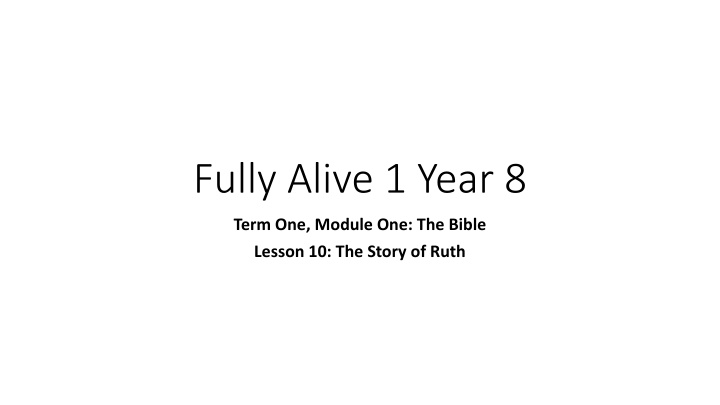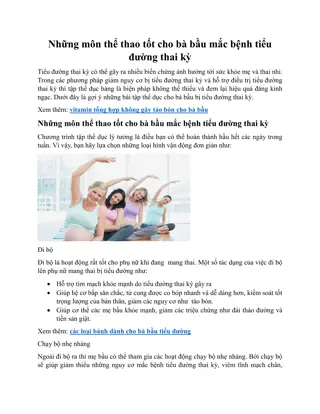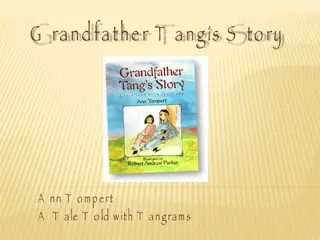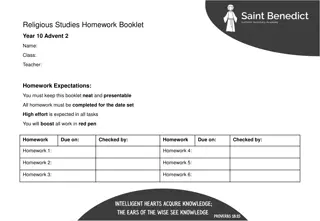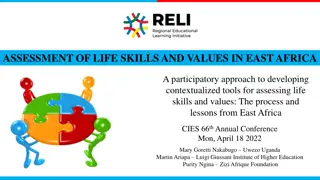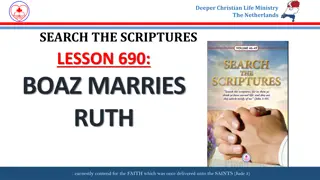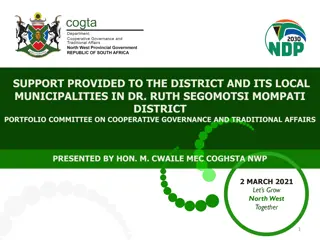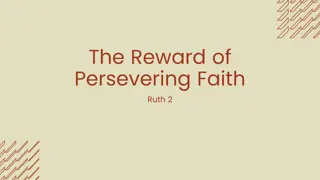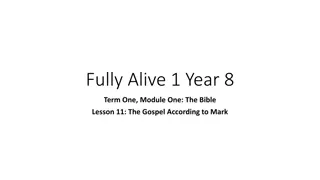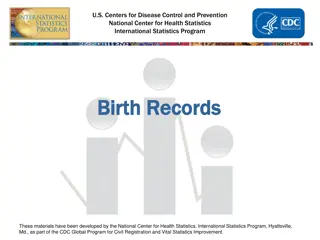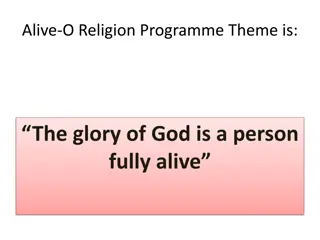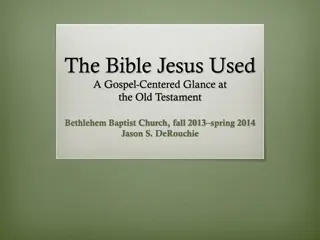The Story of Ruth - Fully Alive for One Year
Delve into the timeless tale of Ruth from the Bible as part of the Fully Alive curriculum. Explore themes of loyalty, love, and faithfulness in this Module One lesson.
Download Presentation

Please find below an Image/Link to download the presentation.
The content on the website is provided AS IS for your information and personal use only. It may not be sold, licensed, or shared on other websites without obtaining consent from the author.If you encounter any issues during the download, it is possible that the publisher has removed the file from their server.
You are allowed to download the files provided on this website for personal or commercial use, subject to the condition that they are used lawfully. All files are the property of their respective owners.
The content on the website is provided AS IS for your information and personal use only. It may not be sold, licensed, or shared on other websites without obtaining consent from the author.
E N D
Presentation Transcript
Fully Alive 1 Year 8 Term One, Module One: The Bible Lesson 10: The Story of Ruth
Learning Intentions In this lesson you will be learning about: the Old Testament story of Ruth; the qualities of bravery, loyalty, kindness and love; how we are called to welcome newcomers and those whom we regard as different from us. 2
Ruths bravery, loyalty and unconditional love Ruth refused to leave Naomi. She said: Don t ask me to leave you! Let me go with you. Wherever you go, I will go; wherever you live, I will live. Your people will be my people, and your God will be my God. Wherever you die, I will die, and that is where I will buried. (Ruth 1:16-17) Ruth did a very brave and loving thing. She could have let Naomi return to Bethlehem by herself and she could have started a new life in her own country. Instead, she was loyal to Naomi, and so she left everything she knew behind and went with Naomi to Bethlehem, a foreign country. 3
We are called to welcome newcomers Sometimes when people move to a new country, they are treated badly, excluded, bullied and sometimes even physically assaulted. This may happen, for example, because they dress differently, have different colour skin, or because they do not speak the local language well or at all. They may be singled out and made fun of. It is important that we do not join in this kind of behaviour but, instead, welcome the stranger and support them as they settle in a new land, just as Boaz did. Pope Francis has spoken a number of times about people s attitudes to newcomers and about our duty as Christians to welcome those who come to live in our country. Migrants and refugees are children, women and men who leave or who are forced to leave their homes for various reasons. A change of attitude towards migrants and refugees is needed on the part of everyone, moving away from attitudes of fear [and] indifference Message of his Holiness Pope Francis, World Day of Migrants and Refugees, Jan. 2014 4
A time to pray Sign of the Cross Teacher We remember the people in the world today who are hungry and thirsty. (Pause) We remember the people in the world today who are far from home. (Pause) We remember the people in the world today who are separated from friends and family. (Pause) We remember the people who are trying to begin again after experiencing great loss and pain. (Pause) Together we pray: All Loving God, we thank you for our families, for our homes, for our communities and for one another. (Pause) We thank you for all the good things in our lives. (Pause) We thank you for the opportunity to help those in difficult situations. (Pause) We thank you for the ability to work for charity and for justice for all. (Pause) We make this prayer through Jesus Christ, our Lord. Amen. Sign of the Cross 5
